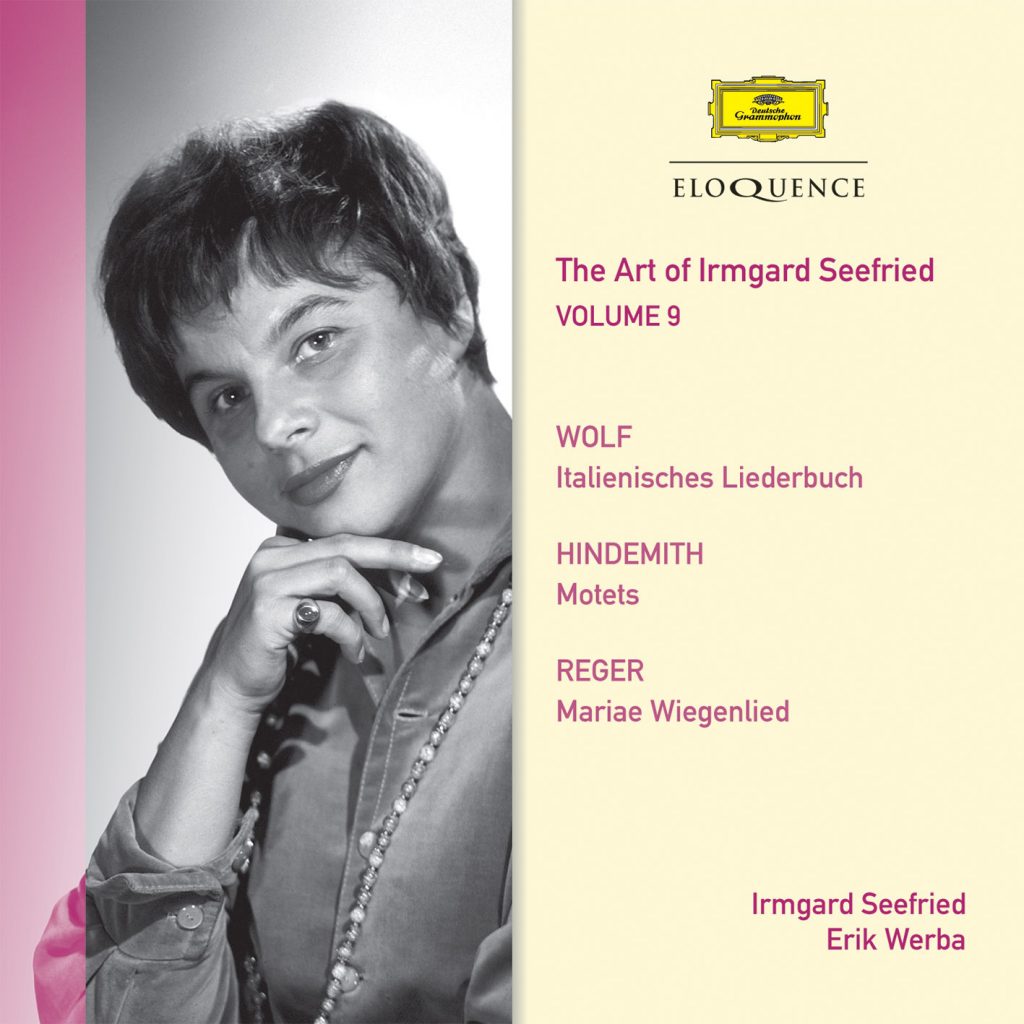Seefried’s radiance and imaginative strength made her a cherishable Lieder singer over an enterprisingly wide repertoire. She always championed the songs of Hugo Wolf, far less frequently programmed in the 1940s and 50s than today. In 1953, Seefried recorded with her regular pianist partner, Erik Werba, 22 numbers from Italienisches Liederbuch. Five years later she teamed up with Dietrich Fischer-Dieskau for a complete recording that quickly became something of a classic and it’s from this recording that the numbers she performs are taken for this issue. Seefried’s tone was no longer quite as crystalline as it had been a few years earlier, yet she compensates with her trademark directness and immediacy of response, bringing each of these pungent vignettes to vivid life.
Ever-adventurous in her repertoire, Seefried made the first commercial recording in 1952, of Paul Hindemith’s Latin motets for soprano and piano of 1941 and 1944 – the beginning of a projected motet cycle spanning Christ’s life that Hindemith would continue in the late 1950s. The disc concludes with one of her frequent encore pieces – the Reger Lullaby.
As for the entire series comprising eleven volumes, Richard Wigmore provides the insightful notes.
HUGO WOLF
Italienisches Liederbuch (selections)
Mörike Lieder
PAUL HINDEMITH
3 Motets
MAX REGER
Mariae Wiegenlied, Op. 76 No. 52
Irmgard Seefried, soprano
Erik Werba, piano
Recording Producers: Hans Weber, Hans Ritter (1–23); Dr. Fred Hamel (24–30)
Balance Engineers: Harald Baudis (1–23); Heinrich Keilholz (24–30)
Recording Locations: Siemens-Villa (Studio Lankwitz), Berlin, Germany, 27–30 September & 15–16 October 1958 (1–23); Mozart-Saal, Konzerthaus, Vienna, Austria, 13 September 1952 (24–25), 11 January 1952 (26), 11 September 1952 (27–29), 9 January 1952 (30)
‘interpreted with such natural accomplishment … Nothing in terms of elation, joy, anger and irony escapes [the artist]’ (Wolf ‘Italianisches Liederbuch’) Gramophone

